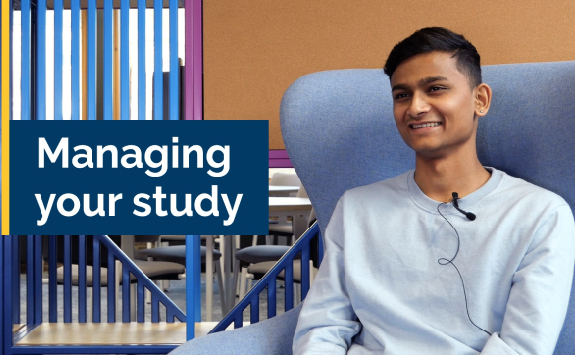Managing your studies
Students are expected to take responsibility for their studies. This means managing your own commitments and engagement to make sure you get what you want from your time at university.
Managing your own time
You will have regular, timetabled academic commitments such as lectures, seminars and tutorials. Attending these is vital to making progress on your programme.
However, most of your time will be clear of academic commitments that you are required to attend. Depending on your previous study experiences, this may mean that you have less ‘contact time’ with teaching staff than you have been used to in the past.
However, even if you don’t have a timetabled academic commitment such as a lecture or a seminar, this does not mean that you have no work to do. Instead, you are expected to organise your own time so that you use it effectively. You are expected to decide what work you need to do, and when you do it.
So, in one sense, you do have a lot of freedom – you can choose how to use most of your time. But this freedom comes with responsibility, too – the responsibility to use your time wisely so that you get what you want from your degree.
University staff cannot organise your time for you. The only person who can make sure you use your time effectively is you.
To organise your own time effectively, you need to balance studying with other activities.
Studying is obviously a vital part of your time at university, and it’s your responsibility to make sure you do the work you need to do. However, studying all the time is not effective, healthy or sustainable. To study effectively, we all need leisure time when we rest and recharge our batteries by doing things we enjoy.
The University offers many opportunities to participate in extra-curricular activities such as societies, sports and volunteering. These are an important part of the wider University experience, and they can enhance your CV with useful skills and experience. However, it’s your responsibility to balance your studies with any extra-curricular activities and achieve an effective study-life balance.
Support is always available if you feel like you’re struggling, but you need to ask for it.

